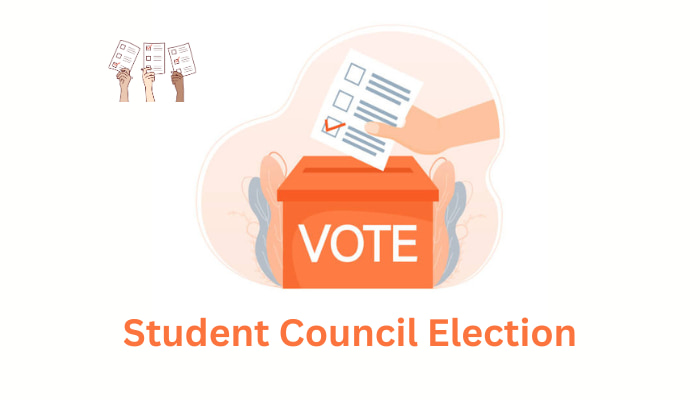Student council elections are a big deal in our school. They’re not just about picking popular students; they’re about choosing leaders who can make a positive difference. Whether you’re thinking of running or just curious about the process, understanding the basics is key.
From who can run to how to campaign and what happens on election day, this guide breaks down the essentials.
What Is Student Council?
A student council is a group of students who are elected by their classmates to represent them and their views. They work together to plan and organize events, address student concerns, and often help make important decisions for the school.
It’s a way for students to have a voice in school matters. Being part of a student council can also teach leadership skills, teamwork, and responsibility.
Various Positions and their Responsibility
President:
- Leads meetings
- Represents the student body
Vice President:
- Assists the president
- Takes over when needed
Secretary:
- Takes meeting notes
- Handles important documents
Treasurer:
- Manages the budget
- Keeps track of funds
Public Relations Officer:
- Promotes events
- Communicates with students
Class Representatives:
- Voice concerns of their class
- Attend council meetings
These positions work together to make decisions, plan events, and address student needs in the school community.
Eligibility
- Academic Standing: Maintain a minimum GPA to demonstrate commitment to academics.
- Behavioral Conduct: Uphold a positive behavioral record with no serious disciplinary issues.
- Attendance Record: Demonstrate regular attendance and active participation in school activities.
- Grade Level: Meet grade-level requirements to ensure appropriate representation.
- Commitment to Serve: Express a genuine commitment to serving the student body.
- Communication Skills: Demonstrate effective communication skills.
- Respect for Diversity: Show respect for the diverse perspectives within the school community.
- Leadership Qualities: Exhibit leadership skills through previous experiences or activities.
- Community Involvement: Participate in school and community events, showcasing a commitment beyond academics.
- Positive Peer Relationships: Maintain positive relationships with peers, teachers, and other school staff.
- No Conflicts of Interest: Declare any potential conflicts of interest that may impact impartial decision-making.
Nomination
Nomination is when students suggest candidates for a certain position, like student council representatives. It lets students actively participate in the election and have a say in who represents them.
1. Announcement: The process starts with a notice about the upcoming student council elections, informing everyone about the available positions.
2. Showing Interest: If you’re interested in running for a position, you can submit your name using forms or online platforms.
3. Checking Eligibility: The school administration will check if you meet the requirements for the role, like your grades, behavior record, and other standards.
4. Nomination Forms: If you’re eligible, you’ll need to fill out nomination papers to indicate which position you want. These papers might need signatures from classmates or teachers who support you.
5. Submitting and Checking: Once you’ve completed the nomination forms, you’ll need to give them to a designated person, like a staff member or teacher advisor, who will check if the signatures are genuine.
6. Announcing the Candidates: After that, the official candidates will be announced, and they can start campaigning before the elections.
Campaigning
During the campaign phase, candidates use various strategies to connect with their peers and effectively communicate their ideas. They gather teams, create attractive posters, and use social media to share their plans.
Candidates have one-on-one conversations with students, expressing their goals and listening to their concerns. This period is filled with lively debates, interesting discussions, and a display of creativity.
The campaign is not just about getting votes; it’s about showing leadership, communication skills, and the ability to connect with students. It all ends with excitement and hope for positive changes.
Campaign Speech
During the speech for the Student Council campaign, candidates talk to their fellow students, explaining their vision, goals, and why they want to be on the Student Council. They try to make a strong emotional connection with the voters by showing their enthusiasm and authenticity.
Learn : How to Write a Student Council Speech
Engaging With the Student Body
Candidates actively connect with their peers through various channels, such as classroom visits, lunchtime interactions, and social media engagement. This outreach allows candidates to understand the diverse needs and concerns of their fellow students, fostering a sense of relatability.
By creating a genuine connection, candidates build trust, demonstrating their accessibility and commitment to representing the student body effectively if elected.
Election Day
On Election Day, the main focus is to make sure everything runs smoothly and democratically. Voting procedures are carefully organized, so students know exactly how to cast their votes.
Throughout the day, there are people actively watching to make sure everything is fair and honest. If any problems come up, they are addressed right away to keep the election fair. It’s important to create a positive voting experience where every student feels comfortable participating.
Results and Acceptance
Once Election Day is over, the final step is to announce the results of the student council election. This is when we find out which candidates received the most votes and will become members of the student council.
The successful candidates then officially accept their positions. During this phase, we congratulate the winners for their hard work and also address those who were not elected, if necessary.
The main goal is to have a seamless transition and recognize the chosen representatives as they prepare to take on their new responsibilities as official members of the student council.



